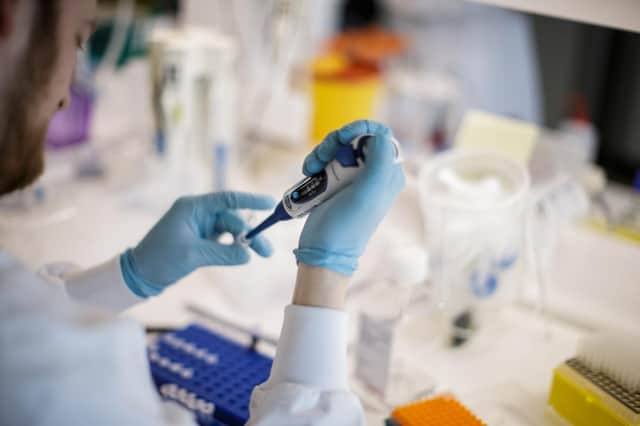Covid vaccines: Scientists are searching for 'holy grail' of lasting protection – Professor Eleanor Riley


I doubt anyone – expert or otherwise – would have confidently predicted in March 2020 that by now a dozen different vaccines would have been rolled out, that more than 60 per cent of the world’s population would have been vaccinated or that the pandemic would have been tamed (albeit, possibly, temporarily) by vaccination in a substantial portion of the globe.
But that doesn’t mean, sadly, that we can say “job done” and move on. Our Covid vaccine challenge is just beginning.
Advertisement
Hide AdAdvertisement
Hide AdFor all their success, our current crop of vaccines is imperfect. They provide very good protection against severe disease for all the virus variants we have encountered so far.
This has kept most infected people out of hospital this winter and prevented many hundreds of thousands of deaths. But, even so, efficacy against severe disease declines over time and periodic boosters are likely to be needed.
More worryingly, currently available vaccines aren’t particularly good at preventing infection, and this protection declines within months and is very dependent on which variant is circulating. We cannot rely on high coverage of current vaccines to stop the virus from circulating and, in the process, mutating.
The Sars-CoV-2 virus rapidly evolves to evade the neutralising antibodies that are our first line of defence against infection. This is why fully vaccinated (and boosted) people are testing positive for Omicron and why we are seeing increasing numbers of people with second or third infections.
Mercifully, these “breakthrough” infections tend to be mild and are frequently asymptomatic. Nevertheless, they are a nuisance and a source of infection for other, more vulnerable, people.
To limit virus transmission and mutation, we need vaccines that much more effectively block infection, protect against a broad range of variants, and do so for long periods of time.
Blocking infection requires high concentrations of antibodies in the nose and throat. Administering the vaccine intranasally or by aerosol may help achieve this: the vaccine directly stimulates antibody-producing cells resident in the lining of the nose and throat.
Protection against different variants can be accomplished by continually updating the vaccine to reflect the current circulating variants and/or combining several variants into one vaccine, as we do each year for ’flu vaccines.
Advertisement
Hide AdAdvertisement
Hide AdBut a more efficient way to combat diverse variants is to develop a vaccine that targets invariant or “conserved” parts of the virus; these vaccines induce broadly neutralising antibodies that are effective whichever variant you are exposed to.
This is the holy grail for ’flu vaccine developers and is tantalisingly close due to a more detailed understanding of the structure and function of virus proteins. The lessons learned are already being applied to Sars-CoV-2.
Improving vaccine longevity is perhaps the biggest challenge. Immunity to common cold coronaviruses is notoriously short-lived, so we are frequently reinfected. We need to do better than Mother Nature. Whether mRNA or adenovirus vaccines can do this is not yet clear but there are other approaches we can try. Alternatively, we may need regular boosters or periodic re-exposure to the virus to top up our immunity.
This, in the end, is what living with Covid may look like.
Eleanor Riley is professor of infectious disease immunology at the University of Edinburgh
A message from the Editor:
Thank you for reading this article. We're more reliant on your support than ever as the shift in consumer habits brought about by coronavirus impacts our advertisers.
If you haven't already, please consider supporting our trusted, fact-checked journalism by taking out a digital subscription.
Comments
Want to join the conversation? Please or to comment on this article.
